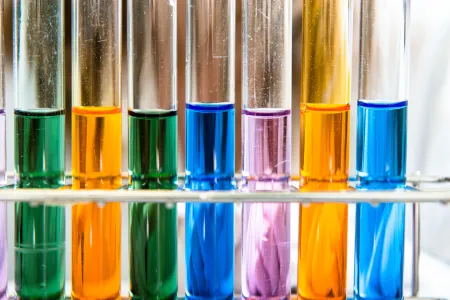
Interview
Of solvents and dissolved agents
Chemistry in solution takes place everywhere, for instance in our bodies. Research in the Ruhr is pulling out all the stops to understand all the details of this.
Whether in living beings or in industrial processes, almost all chemical reactions take place in solution. Those who understand solvent chemistry in detail not only gain new insights into nature but can also break new ground to optimise processes and, for instance, make them more environmentally friendly. The cluster of excellence Ruhr Explores Solvation, Resolv, is working on this detailed understanding. Its speaker is Prof Dr Martina Havenith-Newen, chemist at Ruhr-Universität Bochum.
Ms Havenith-Newen, you hold one of the first UA Ruhr professorships across all of the sites. What does that mean for your research work?
With a closer connection to laser physics at TU Dortmund University and the University of Duisburg-Essen, I expect that we will be able to develop new methods for time-resolved, non-linear laser spectroscopy. My working group has developed terahertz spectroscopy as a new method of investigating solvation at a molecular level. With the funds for the UA Ruhr professorship and the Advanced Grant from the European Research Council, I would like to take things a step further and pursue this phenomenon in a time-resolved manner.
Which research questions within solvent research do you expect scientists at UA Ruhr to be able to answer in the next ten years?
Fundamental questions that we want to answer include: how can we understand the interaction of the solvent with the dissolved agent at a molecular level and how can we have a targeted influence on this? How do proteins interact with the solvent? What role does water play in molecular identification and how must this contribution be taken into account in the development of medications? How is this interaction influenced by extreme conditions such as pressure, low temperatures and spatial limitations in nanopores?
What do you hope for UA Ruhr on its tenth anniversary?
I would like parochial thinking to be overcome and the researchers to gain more freedom. I hope that UA Ruhr does not lose itself in university politics, but instead focuses on enabling excellent, internationally competitive research. We cannot afford to lose the best researchers – from students to professors. Only together can UA Ruhr compete with the other major scientific sites in Germany over the long term.
